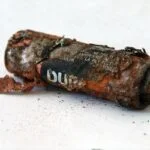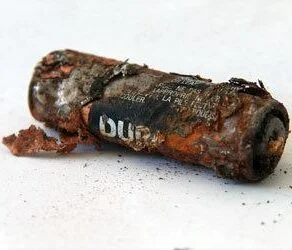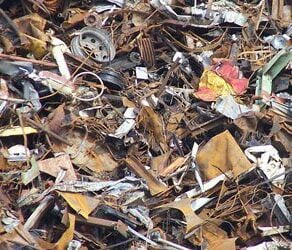Maria asked: How do I clean corroded batteries from a remote control? My surround system does not work due to corroded batteries. I have not used my surround system for quite awhile, so my remote control with batteries was just sitting inside the box in my storage. When I was about to use it, I found that there were corroded batteries inside the remote control. It suddenly stops working. Is there a way to clean it?
When batteries corrode, the exterior is damaged and the acid begins to seep out into the battery compartment. If not removed, it inhibits the batteries ability to make proper contact with the terminals so the power can be transferred into the device. The corrosion can also damage anything it comes into contact with (including you!). Removing this corrosion is easy and safe to do if you’re careful.
batteries corrode, the exterior is damaged and the acid begins to seep out into the battery compartment. If not removed, it inhibits the batteries ability to make proper contact with the terminals so the power can be transferred into the device. The corrosion can also damage anything it comes into contact with (including you!). Removing this corrosion is easy and safe to do if you’re careful.
You Will Need:
- Cleaning gloves
- Soft cloths
- Baking soda
- Water
- White vinegar
- Cotton balls or cotton swabs
Steps to Remove the Corrosion:
- Put on protective cleaning gloves. Touching the corrosion with your bare skin can give you chemical burns. It is also a good idea to put on eye protection.
- Begin by removing the damaged batteries.
- It may be necessary to pry them out with a screwdriver or dull knife. Use caution not to damage the already weak exterior of the battery any further.
- Once the batteries are removed, dispose of them properly and wash the corrosion off your screwdriver/knife and gloves.
- Use a soft cloth or paper towel to gently wipe off as much of the dry corrosion in the battery compartment as possible. It is best to place this directly into a trash can or onto an old cloth that you don’t mind being damaged.
- Moisten a soft cloth with white vinegar. A mixture of four parts water and one part baking soda can also be used. Either mixture will work, regardless of the type of batteries you have; they will just work in different ways. You can read more about this in the Additional Tips section below.
- Rub the cloth over the affected areas. Don’t be surprised if there is fizzing; that just means the cleaner you are using has the opposite pH of your batteries.
- If the areas are small or hard to reach, a cotton swab can be used to reach them more easily. Be careful not to allow any drips to enter your device.
- When the corrosion is removed, wipe the area with a clean cloth moistened with water.
- Dry the compartment with a soft cloth and allow it to air dry completely before use.
Additional Tips and Advice
- Vinegar is an acid and baking soda is alkaline. If you choose a solvent that is the same pH (acid or alkaline) as your batteries, it will work by dissolving the corrosion. If you choose a cleaner that has the opposite pH, a chemical reaction will occur, causing fizzing. The reaction will neutralize the corrosion and the fizzing will help to loosen it. Either method will work to remove the corrosion.
- Don’t use so much liquid that it can seep into any electrical components of your item.









This worked for me. Thanks!
I was given a home theater surround sound system that had belonged to my uncle. There were features only accessible using the remote, but the batteries were so corroded that I had to pry them out (who knows how long they’d been in there–way too long–that’s a fact). I thought for sure the remote was “history.” After trying to clean the battery compartment out myself, and putting fresh batteries in (only to find the remote still wouldn’t work), I found your website and followed the steps above. Once the remote was dry, I put the batteries in and it worked! Thank you so very much! 🙂
This article was incredibly helpful in cleaning the battery compartment of my speakers. Thank you for all of the helpful advice and for making my speakers work again.
I Used your suggestion of a Q-tip dipped in white vinegar to clean the spring and contacts of my TV remote. It worked out beautifully and I am using the remote again. Thanks for your advice.
I have had this same problem with my Wii board, except that the batteries have melted the metal and now the battery will not sit in it – it just falls out. Can I do anything to get this fixed or replaced or is it history?
Thank you very much – will do!
Battery “acid” is acidic. Vinegar is an acid. Baking soda is a base. To neutralize the acid, simply use baking soda and water. Use an old toothbrush if necessary. Don’t use vinegar; it is an acid and is not effective in the way that baking soda is.
Actually, most batteries used in remotes are Alkaline batteries. These are powered by strong bases (alkaline substances), rather than acids, hence the name. Alkaline batteries can leak potassium hydroxide when the batteries become old and generally discharged. The potassium hydroxide absorbs carbon dioxide from the air to form potassium carbonate, the crystalline white substance (corrosion) found in old electronics. Vinegar would be the only thing you should need to clean the terminals. The acetic acid found in vinegar reacts with and helps neutralize the basic potassium carbonate, making it easy to remove.
No, most used to have acid so it’s generally now just a term. Acid is in few batteries other than a car battery. Remotes, toys that use an “alkaline” battery; is not an acid. So, to neutralize it to the proper ph: use an acid. An acid is a substance that donates hydrogen ions. Because of this, when an acid is dissolved in water, the balance between hydrogen ions and hydroxide ions is shifted. Now there are more hydrogen ions than hydroxide ions in the solution. This kind of solution is acidic.
A base is a substance that accepts hydrogen ions. When a base is dissolved in water, the balance between hydrogen ions and hydroxide ions shifts the opposite way. Because the base “soaks up” hydrogen ions, the result is a solution with more hydroxide ions than hydrogen ions. This kind of solution is alkaline.
Paul is correct if you have an acidic base battery. They are the low cost standard AAA through D cells used most commonly in flashlights. Most electronics today use and recommend an alkaline battery, which is just the opposite of an acidic battery so you should use vinegar (or lemon juice) in that case.
Hello,
Thank you for the informative article on cleaning batteries. We have an elliptical machine with a screen attached that requires batteries. The coil for the batteries got pulled out, as a result of age. Is there any way to replace the coil for the batteries to make the screen work again?
Try searching on digikey’s site:
http://www.digikey.com/
They have the contacts for a battery operated device I owned with the same problem.
I have a Sleep Number Bed. I use it every night. How the batteries went bad is anyone’s guess. But, thanks to these instructions, using vinegar did the trick. Thank you so much!
My remote works again! Thank you!!!
Thanks a lot! It worked!
It worked! Thanks so much!!!
I cleaned the battery box with vinegar, then installed new batteries. One week later, the device stopped working again and on checking the battery box, the corrosion is back. How can I stop it from returning?
Thanks.
Randy,
First, that’s good you used new batteries after cleaning. If you clean off corroded batteries and try to use them again, they will just leak more acid.
You can prevent the new batteries from corroding with the method used on car battery terminals: rub some petroleum jelly on them. You don’t need much petroleum jelly, just a thin layer should do the trick.
Source: HowToCleanStuff.net – How to Clean Car Battery Terminals
Did you use water to remove the vinegar when done? It can react with the metal and cause it to reoccur.
I discovered that if the corroded wires are broken off, ball up small pieces of tinfoil in its place worked like a charm.
About how long does this process take?
Old article, but it saved me approx. 2.500 USD, so I am really happy.
Thanks for the advice! 😉
Baking soda is useless on alkaline batteries, like most non-rechargeable household batteries are today (D, C, AA, AAA, 9-volt, etc). You must use an acid, such as vinegar or lemon juice; distilled white vinegar is best. Baking soda is good to use during clean up to ensure no vinegar has been left on the parts as baking soda will neutralize the vinegar and yet become stable when it dries.
If you’re dealing with lead-acid batteries, which are rare in modern household devices, but common in automotive batteries, baking soda is the correct cleaner. However, these are far more dangerous to deal with; the acid in a lead-acid battery is H2S04 (Sulfuric Acid) and it can eat through your clothing and skin very quickly, it also releases noxious S02 (Sulfur Dioxide) and, frequently, extremely flammable H2 (Hydrogen) gas. You should only attempt to clean these in a well ventilated area with proper protective equipment.
But… how do you get rid of the smell?
Patricia,
Both vinegar and baking soda are effective deodorizers. If any smell remains after fully cleaning out the residue, sprinkle some baking soda in the compartment, let it sit for a few hours, then brush it out.
Used the distilled white vinegar on a $350 Nikon electronic flash that alkaline batteries had leaked in. Worked like a charm. Thanks.
I tried the balled up foil to replace the broken wire and it worked!!! Thank you!
This is good information. My question is, can I use a car battery terminal protector (the red spray stuff) to prevent batteries to corrode again in the TV remote? Thanks!
Himanshu,
It would be great if that worked! It’s certainly possible that it might work, at least temproarily. The grease is used on car battery terminals to provide an airtight seal around the terminal, preventing the gas that is being released (leaked) from the battery from reacting with the air and causing corrosion, and also preventing any humidity or air from damaging the battery and causing it to leak faster. In a TV remove battery compartment, humidity and air is much less of an issue in terms of them causing the battery to corrode more quickly, unless you live in a particularly high humidity area. However, the grease could help by further locking in the corrosion (basically providing an extra layer on the battery) and also preventing it from encountering the air (oxygen) right away when it does leak. In other words, the battery will naturally degrade over time, leading to corrosion, but the grease could buy you just a little extra time so it is certainly worth a try.
Do not spray the product into the remote though as that would lead to excess liquid near the electronic components and could damage the remote. Instead, apply the spray on a cloth or paper towel and then wipe it onto either end of the battery.
Source: HowToCleanStuff – How to Clean Car Battery Terminals
Source: DIY Go Karts – Dielectric grease, for small batteries?
This series of comments are a bit repetitious, but they’re worth reading for the extra explanations. The hard part of battery cleanups is the cleaning of corroded springs and contact points. If reachable with something like a nail file, wouldn’t polishing them be the way to go?
John,
That depends on what you mean by “polishing.” In general, just a cleaning is all that is needed to be sure the contact points are free of corrosion. While grease can act as a conductor, metal polish usually contains other ingredients and isn’t a conductive grease per se, so it would be best to just keep the area clean rather than introduce more chemicals and ingredients to the area that could block the current (or even could be a fire hazard).